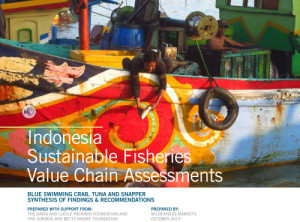Projected change in global fisheries revenues under climate change
A recent paper (September 2016) in the scientific journal of the National Institutes of Health exploring the implications of climate change on global fisheries revenues provides some sober reading.
The report explores how fisheries revenues of maritime countries will be impacted by climate change as a necessary “crucial next step towards the development of effective socio-economic policy and food sustainability strategies to mitigate and adapt to climate change”.
The report shows “that global fisheries revenues could drop by 35% more than the projected decrease in catches by the 2050 s under high CO2 emission scenarios. Regionally, the projected increases in fish catch in high latitudes may not translate into increases in revenues because of the increasing dominance of low value fish, and the decrease in catches by these countries’ vessels operating in more severely impacted distant waters. It finds that developing countries with high fisheries dependency are negatively impacted.”
See: Lam, Vicky W. Y. et al. “Projected Change in Global Fisheries Revenues under Climate Change.” Scientific Reports 6 (2016): 32607. PMC. Web. 18 July 2017.
The significantly higher impacts on developing country revenues both for export and domestic consumption are documented in the paper and provide further evidence to the risks climate change creates for wild capture fisheries.



